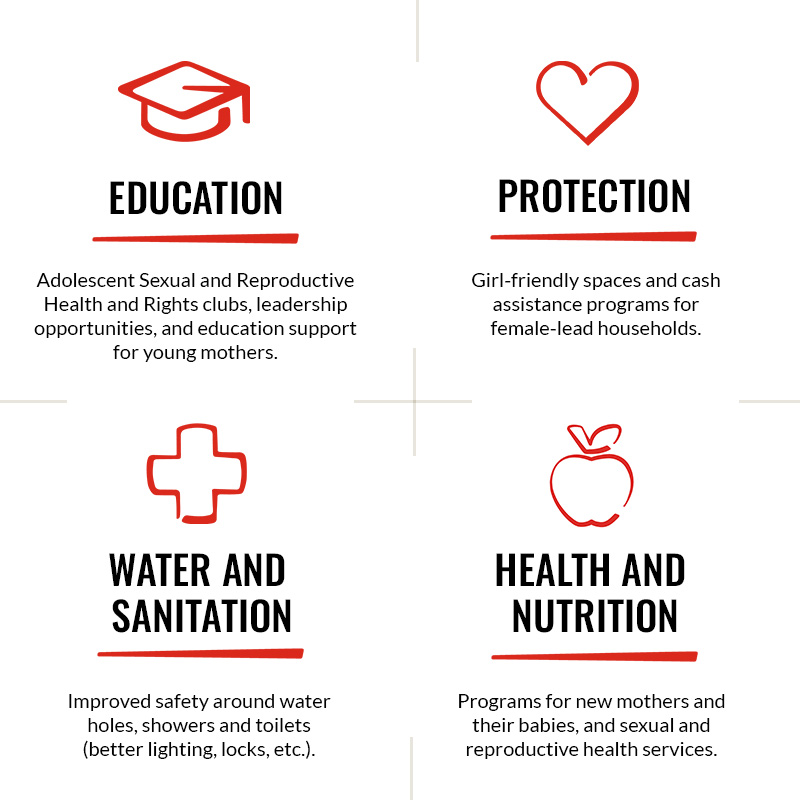In the last thirty years, the number of children living in war zones has almost doubled. Girls are at a significantly higher risk of sexual and gender-based violence – including forced marriage – while boys are exposed to physical harms such as killing, maiming, and abduction.
Women and girls are also more likely to go hungry in conflict and in women-led households, because mothers will skip meals to ensure their children are fed.
Girls also face additional risks such as limited access to essential services, including health care and education.
To help the wellbeing of children living in conflict, Save the Children provides support across several key areas, including:

Yes, I want to help children in crisis
Stories from Children in Crisis
-
Maha*, 10, lives with her family – including her 16-year-old sister Maya* and her 38-year-old father Jamal* – in Taiz, Yemen. In recent years, they were displaced from their village due to conflict.
-
Solomia* and her parents lived in Kherson. At the beginning of the full-scale war in Ukraine, their city became beyond the government’s control.
-
Ahmed*, 10 lives in Jabalia, Gaza with his parents and six siblings. During the May 2021 escalation his home was hit by shelling, it was completely destroyed and Ahmed* was injured by shrapnel in his leg.
-
Fifteen-year-old Maria* was a student when the political and economic crisis hit Venezuela. Life was very challenging for Maria’s family and they struggled to buy food and medicine.
-
Yasmina* (8 months) and her mother Noor Ayesha* (30) required access to a nutrition centre, where Yasmina and her sibling received medication and were checked for malnutrition.
Gender Equality is every child’s right

Gender Equality is every child’s right
Gender equality is a fundamental human right. In fact, it is so fundamental that it appears in the second Article of the Convention on the Rights of the Child, which establishes gender as a protected characteristic, no different than race, religion and disability.
Gender equality not only provides children with equal opportunities to education, health, protection —but also the freedom of choice.










